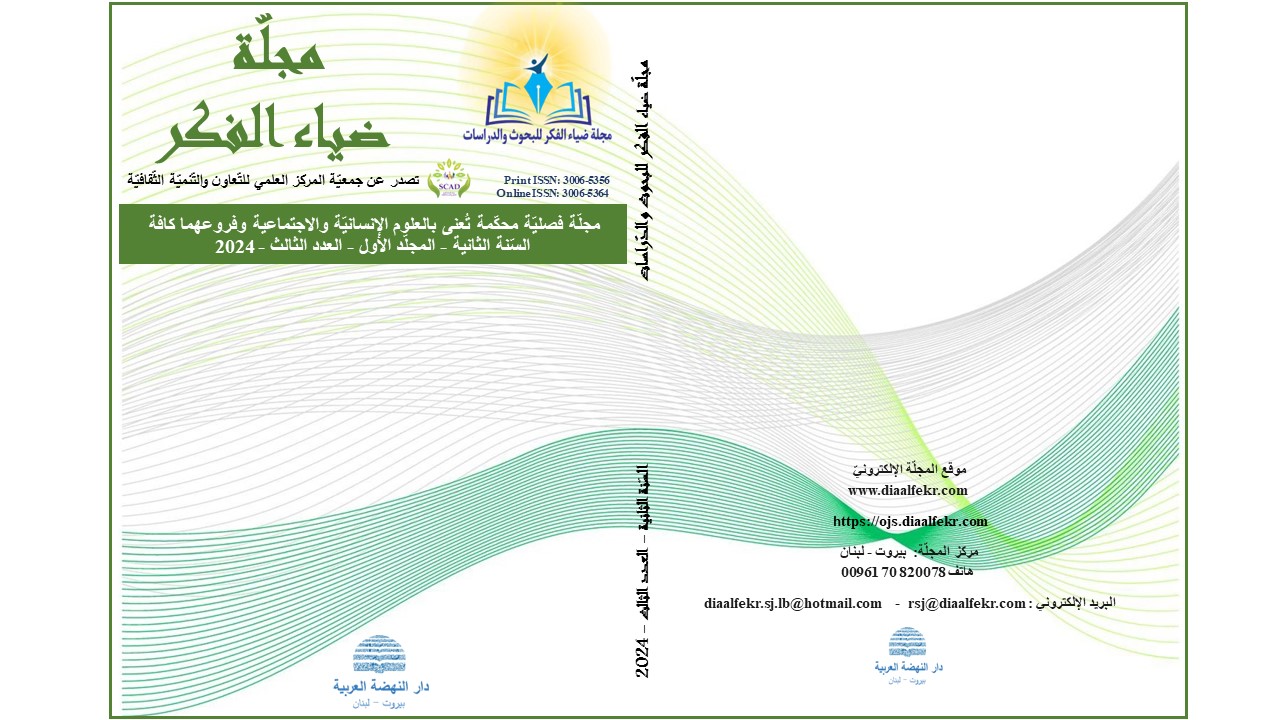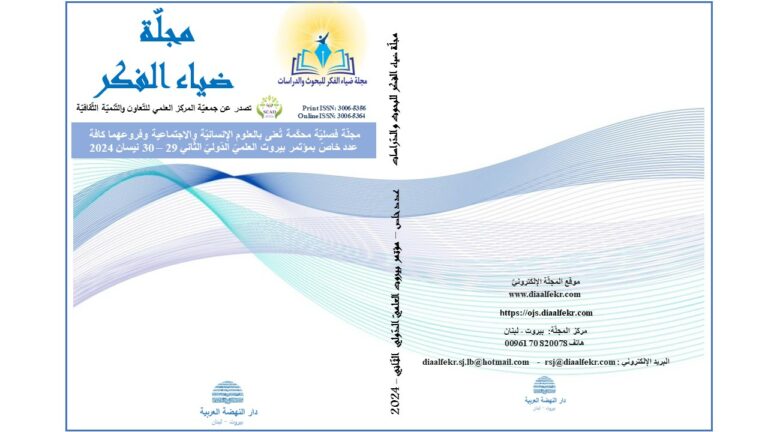مجلة ضياء الفكر

رقابة الهيئات المستقلة على الموازنة الاتحاديّة: هيئة النّزاهة والكسب غير المشروع أنموذجًا
ستار جبار حمد الزكيطى
أ. د. علي زعلان
مجلة ضياء الفكر للبحوث والدراسات
العدد الثالث
ص ص 111 – 142
الملخّص:
تعتبر الموازنة العامة عملًا هامًّا جدًّا في الدولة حيث انها تحقق أهداف الدولة العديدة خاصة في مجالات التنمية، والموازنة العامة في الدولة الاتحادية تأتي تعبيرا عن البرامج المالية للاتحاد الفيدرالي التي تتميز بها عن الدول غير الاتحادية من حيث توزيع الثروات والموارد المالية على الوحدات المكونة للاتحاد الفيدرالي، ومن هنا تعد الموازنة العامة الاتحادية أداة رئيسية لتحقيق انجازات الأداء المالي العام، كما أنها الوسيلة التي تستعملها السلطة التشريعية الاتحادية للاستدلال على كفاءة أجهزتها التشريعية والتنفيذية والرقابية.
وتستخدم الدول الاتحادية معايير رقابية مختلفة لتحقيق غاياتها، وتتمثل رقابتها برقابة تشريعية ومالية وادارية، وهذه الأخيرة تمارسها عبر الأفراد والمؤسسات الإدارية، وهنا حيث تتمحور دراستنا، فمن بين أدوات الرقابة الإدارية على الموازنة الإتحادية نجد رقابة الهيئات والأجهزة المستقلة على الموازنة ونخص بالدراسة رقابة هيئة النزاهة، ومن هنا جاءت أهمية هذه الدراسة لتكون إضافة متواضعة ضمن الأبحاث التي تناولت موضوع الرقابة وخاصة أن بعض هذه الهيئات كمكاتب التفتيش العام قد توقفت في العراق، إذ لا نرى بأن رقابة هذه الأجهزة وبخاصة هيئة النزاهة على درجة كبيرة من الأهمية وخاصة بعد الأرقام التي تقدمها خلال تقاريرها وخاصة في مجال الفساد.
ومن هذه النقطة صغنا إشكالية دراستنا حول استفسار متعلق بمدى استطاعة هذه الأجهزة وخاصة هيئة النزاهة تحقيق الرقابة الفعالة وبعض الأسئلة الفرعية التي دارت في فلكها، وبالاعتماد على مناهج البحث التاريخي والتحليلي الوصفي والقانوني المقارن مع بعض الدول الاتحادية كإنكلترا والولايات المتحدة الاميركية وبعض القوانين الرئيسية كقانون الهيئة رقم 30 لسنة 2011 وتعديلاتها. وقد قسمنا دراستنا لمطلبين بحثنا في الأول منه الإطار النظري للموازنة العامة في الدول الاتحادية، بحثنا في الموازنة ومضمون رقابة الهيئات المستقلة ورقابة هيئة النزاهة في العراق على الموازنة، وخصّصنا المطلب الثاني لرقابة بعض الهيئات المشابهة في الدول المقارنة، وانتهينا بفقرة تبحث في عيوب هذه الرقابة، وخلصنا في نهاية البحث لخاتمة تضمنت نتائج الدراسة وبعض المقترحات، وكان من بين ما توصلنا إليه أنّ مضمون رقابة الهيئات المستقلة تشمل رقابة قضائية واجارية واستشارية بالإضافة إلى التقارير، كما وجدنا في الإحصاءات الأخيرة لسنة 2023 أنّ الهيئة أنجزت من الشكاوى والإخباريات نسبة 79% تقريبًا، وأنجزت من التقارير ما وصل إلى 96% بشكل تقريبي كما أنّها حقّقت في العديد من قضايا الفساد عبر تلقي الشكاوى وإعادة الأموال. واقترحنا أن تكون هيئة النزاهة في العراق على غرار مكتب المراقب المحاسب العام في أميركا حيث يتمتع المكتب برقابة سابقة وأخرى لاحقة والتحقيقات تستمر حتى بعد إنجاز الموازنة وليس فقط رقابة تخصص أثناء تنفيذ الموازنة، كما نوصي بإعادة تفعيل مكاتب المفتشين العامين أو تجهيز شيء بما يشابه تلك المكاتب.
الكلمات المفتاحيّة: رقابة، موازنة عامة، الدول الاتحادية، هيئات مستقلة، هيئة النزاهة، الكسب غير المشروع.
Supervision of Independent Bodies on the Federal Budget: The Integrity and Anti-Corruption Commission as a Model
Sattar Jabbar Hamad Al_Zigetee
Prof. Dr. Ali Zaalan
Issue (3)
p.p. 111 – 142
Abstract:
The general budget is crucial in any state as it helps achieve multiple national goals, especially in development areas. In a federal state, the general budget reflects the financial programs of the federal union, differing from non-federal states in the distribution of funds and financial resources among its constituent units. Hence, the federal budget serves as a key tool for achieving overall financial performance and is used by the federal legislative authority to assess the effectiveness of its legislative, executive, and supervisory bodies.
Federal states employ different supervisory standards to achieve their goals. The supervisory role involves legislative, financial, and administrative controls, with administrative supervision implemented by individuals and administrative bodies. Our study focuses on this topic, particularly examining the administrative supervision of the federal budget, including scrutiny by independent bodies and agencies, with particular interest in the supervision conducted by the Integrity Commission. This study is crucial as it modestly contributes to research on supervision, especially since some of these bodies, such as the Inspector General’s Office, have ceased functions in Iraq. It does not appear that the supervision of these agencies, especially the Integrity Commission, holds great significance, specifically given the figures presented in their reports, especially in the field of corruption.
Henceforth, we focused on the problematic aspect of this study concerning inquiries related to the extent of these agencies’ ability, especially the Integrity Commission, to achieve effective supervision and some subsidiary questions within its scope. Relying on historical, descriptive analytical research methods, and comparative legal analysis with federal countries like England and the United States of America, and key laws such as Law No. 30 of 2011 and its amendments, we divided our study into two parts. In the first part, we examined the theoretical framework of the federal general budget, our study of the budget, and the supervision by independent bodies and the Integrity Commission on the budget in Iraq. In the second part, we examined supervision conducted by some similar agencies in comparative countries and concluded with a paragraph examining the flaws in this supervision. Finally, we concluded our study with a comprehensive summary of findings and proposals.
Among our findings was that the content of supervision by independent bodies includes judicial, financial, and advisory aspects, in addition to reports. According to the latest statistics for the year 2023, the Integrity Commission resolved approximately 79% of complaints and reports and achieved about 96% completion of reports. It also succeeded in addressing numerous corruption cases through receiving complaints and recovering funds. We proposed that the Integrity Commission in Iraq be modeled after the Inspector General’s Office in the United States, where the office exercises both prior and subsequent supervision, and investigations continue even after budget completion, not just focusing on supervision during budget execution. Additionally, we suggest reactivating Offices of Inspector Generals or establishing similar entities.
Keywords: Supervision, General Budget, Federal States, Independent Bodies, Integrity Commission, Illegal Gains.


